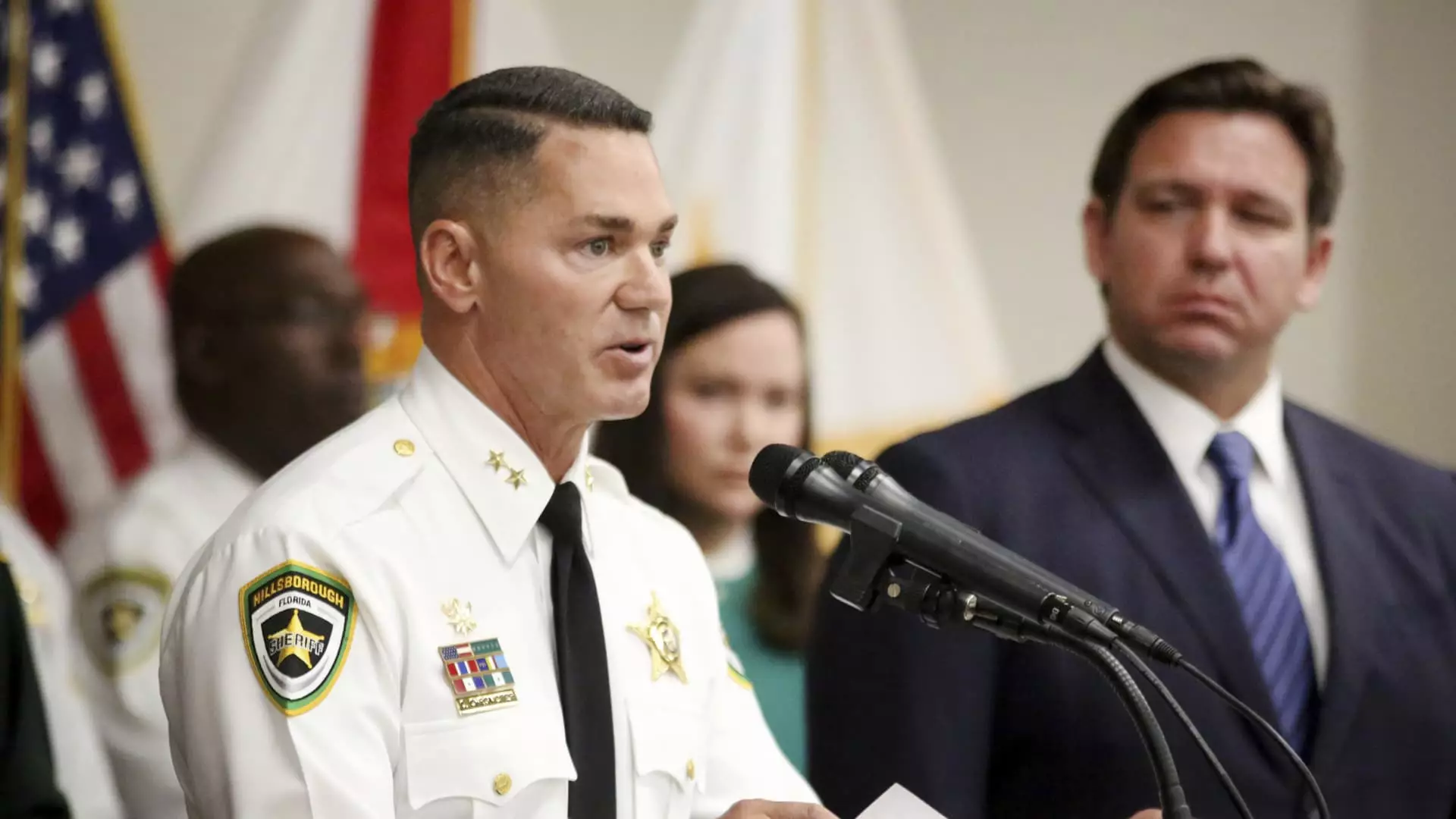The recent political landscape has been turbulent, with numerous nominations and their subsequent retractions making headlines. One significant development emerged with Chad Chronister, the Hillsborough County Sheriff, who was tapped by President-elect Donald Trump to lead the Drug Enforcement Administration (DEA). Chronister’s brief candidacy raises questions about the nomination process, the political climate, and the future of drug enforcement strategies.
Chronister’s decision to withdraw from consideration after only three days is a poignant reflection of the complexities involved in high-profile political appointments. In a post shared on the social media platform X, he expressed deep gratitude for the nomination but emphasized the weight of responsibility that accompanied the role. He cited ongoing commitments to his community, suggesting that the position demanded an attention that he could not spare amidst his local obligations. This raises pertinent questions about the balance between local and national responsibilities for public officials and the expectations placed upon them when called to serve at a higher level.
Moreover, it is noteworthy that Chronister’s withdrawal marks him as the second nominee to step back from a role in Trump’s administration within a short time frame. This indicates potential unrest or dissatisfaction within the ranks of the president’s selections, hinting at a pattern where nominees may feel unable or unwilling to undertake the daunting pressures of high office amidst evolving political narratives.
Public and Political Reactions
Chronister’s rapid withdrawal was not without criticism and intrigue, particularly from various political circles. Some members of the Republican Party were reportedly uneasy about his selection for the DEA, apprehensive due to past decisions made during his tenure as sheriff. For example, his action to arrest a pastor during the height of the COVID-19 pandemic drew the ire of several conservative factions. Rep. Thomas Massie’s vocal disapproval was evident when he condemned Chronister’s approach as unnecessarily heavy-handed. Such sentiments illustrate the divide within the Republican Party regarding the perceived balance between maintaining public safety and respecting individual liberties, a dichotomy that has intensified in recent years.
The backlash against Chronister highlights the complexities of public service, where decisions made for one specific context can resonate harshly in another. Thus, his nomination and subsequent withdrawal can be interpreted as reflective not just of Chronister as an individual, but of the broader political currents that define contemporary governance.
Chad Chronister’s brief foray into federal appointment also shines a light on the critical ongoing battle against drug trafficking, particularly the opioid crisis involving substances like Fentanyl. Trump’s initial announcement heralded a collaborative approach aiming to secure borders and tackle the influx of illegal drugs rigorously. However, with his choice for leading the DEA now effectively withdrawn, the question remains: who will step in to continue this agenda?
The challenges facing the DEA are colossal. With transnational drug cartels continuously evolving their strategies, the approaching occupant of the administrator position will need to navigate a complex web of politics, law enforcement, and community health initiatives. The ongoing crises surrounding drug use and dependency require robust leadership, as the effects of drug-related policies impact communities across the nation.
Chronister’s withdrawal serves as more than just an isolated incident; it reflects Trump’s broader leadership style and the inherent challenges in attracting top talent for government roles. The type of individual capable of managing the intricacies of drug enforcement at a national level may be wary of the political ramifications tied to such roles, particularly amidst partisan strife and public scrutiny.
Ultimately, the professional alarms raised by Chronister’s decision bring to the forefront critical considerations regarding the scrutiny nominees face. It demonstrates that, for candidates, the true cost of public service extends beyond mere administrative duties—it encompasses intangible elements such as political fortitude, public perception, and the weight of historical decisions.
As the nomination drama unfolds, it serves not only as a cautionary tale for future picks but also highlights the essential discussions around drug enforcement leadership and the intricate balance required to serve effectively at different levels of government.


Leave a Reply